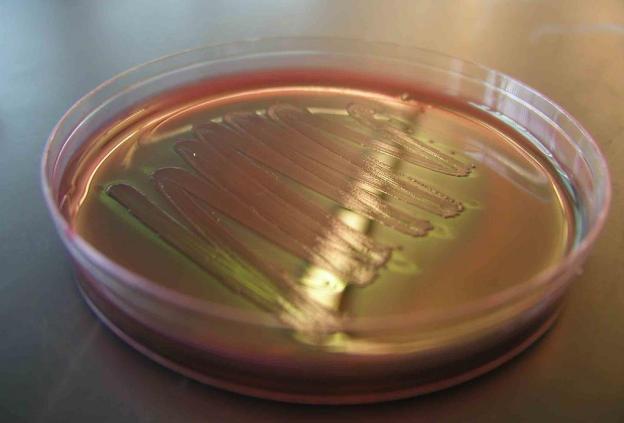
In journalism school I became a biofuel dork. It sort of happened by accident, really. One dark winter term, I was assigned to write a 100+ page research paper. The topic I chose: biofuels.
While the vast majority of my work surrounded corn-derived ethanol, a small portion was devoted to biofuels created from bacteria.
At the time, the concept was a pipedream. There were some labs creating the stuff but the process was tedious and the resulting fuel would gum up conventional gasoline and diesel engines. Early experiments yielded biofuels that was close to the stuff we pull out of the ground but not close enough to avoid long-term reliability issues.
Now, however, it seems John Love from the University of Exeter in the UK has sorted the process out. Here’s how New Scientist describes Love’s process: “[Love] took genes from the camphor tree, soil bacteria and blue-green algae and spliced them into DNA from Escherichia coli bacteria. When the modified E. coli were fed glucose, the enzymes they produced converted the sugar into fatty acids and then turned these into hydrocarbons that were chemically and structurally identical to those found in commercial fuel.” (DT’s emphasis)
While the creation is impressive, in its current state, Love’s biofuel-creating bacteria feeds on plant matter, which is monetarily and environmentally costly.
More impressive, however, Love wagers he can alter the genes of the bacteria to allow the biofuels to be created from a straw or animal manure diet, both of which are far more abundant and far less impactful.
It’s astonishing to fathom. In the near future, we might be able to take waste and turn it into gasoline for our cars from a process that is carbon neutral over its lifespan.
Now before you begin to spin conspiracy narratives about an oil industry uprising to kill the stuff, know that the research was partly funded by Shell. Perhaps the oil producer figures growing gasoline in a lab will soon be cheaper than extracting it from the earth?
I, for one, am very excited to see this breakthrough – I honestly never thought we’d get there. Now I hope we can just get it to a cost-effective and environmentally sustainable state.
What do you think? Should we (or Shell) look for more ways to make gas, or find other ways altogether to power our vehicles? Why or why not? Leave a comment below.
Photo credit: adonofrio Biology101.org on Flickr


